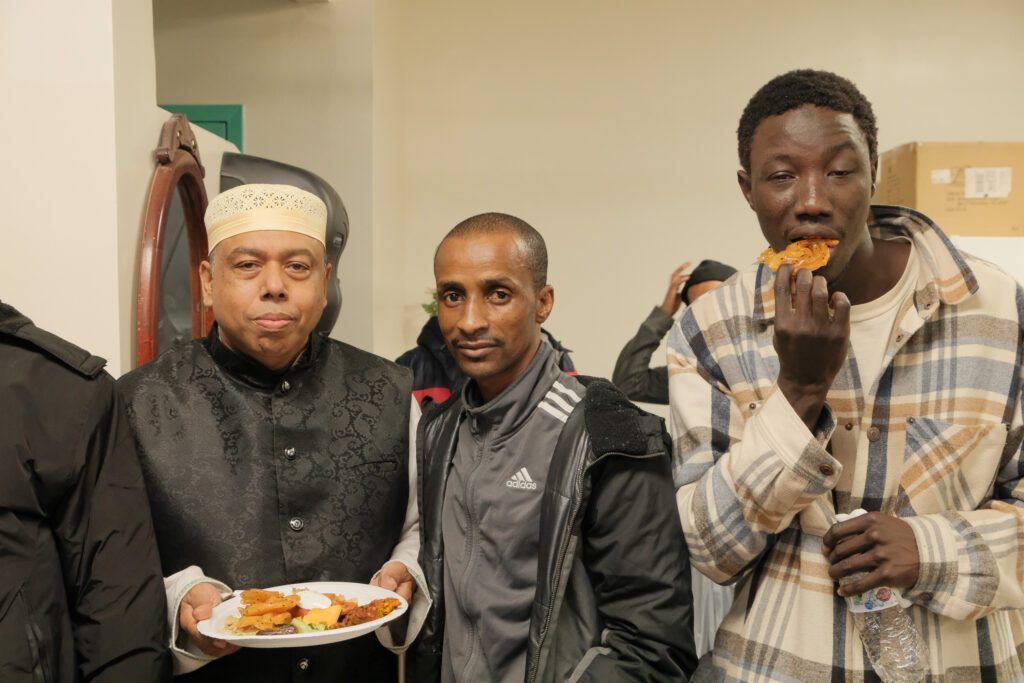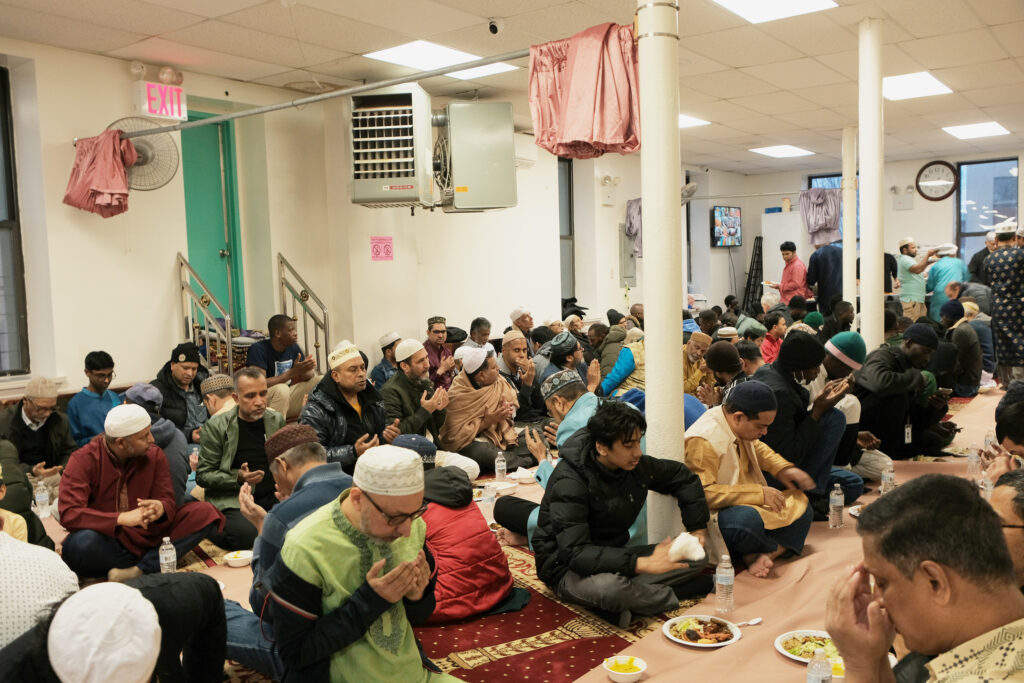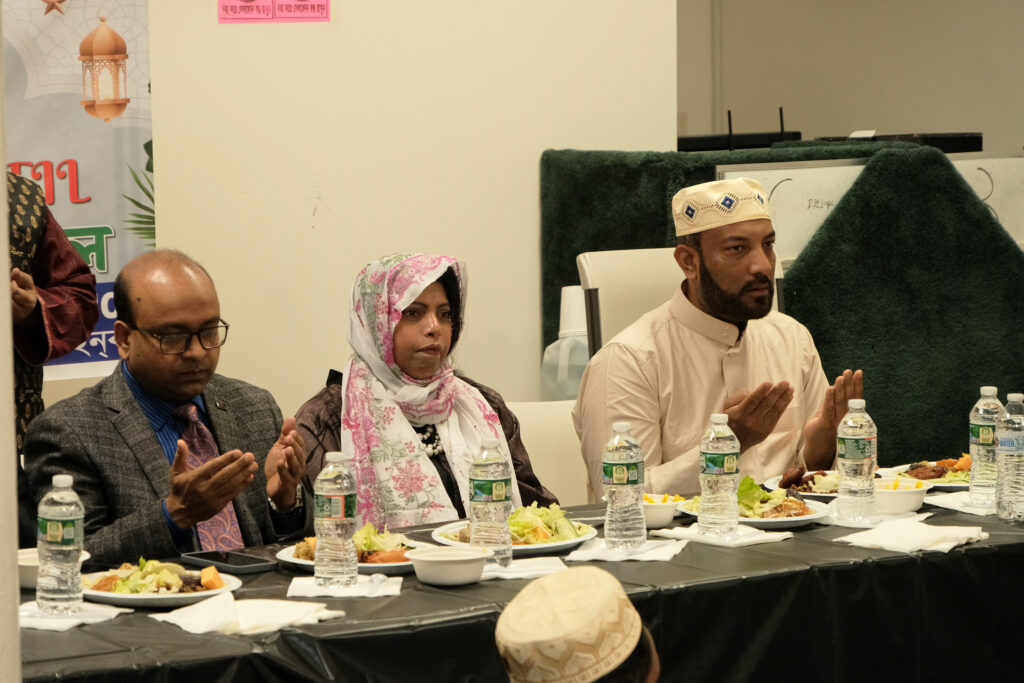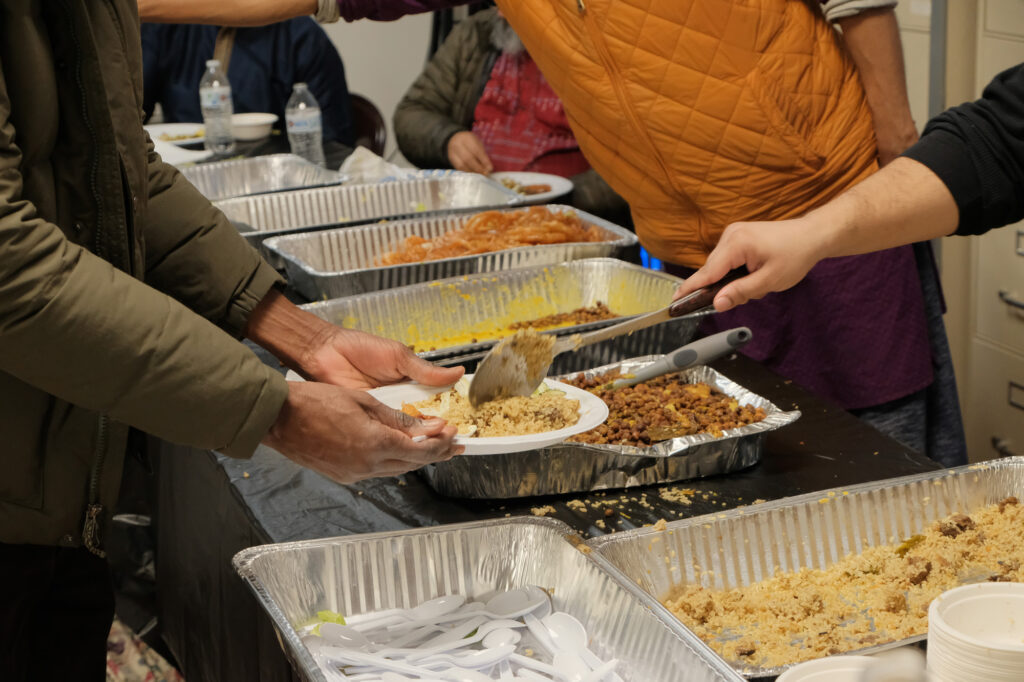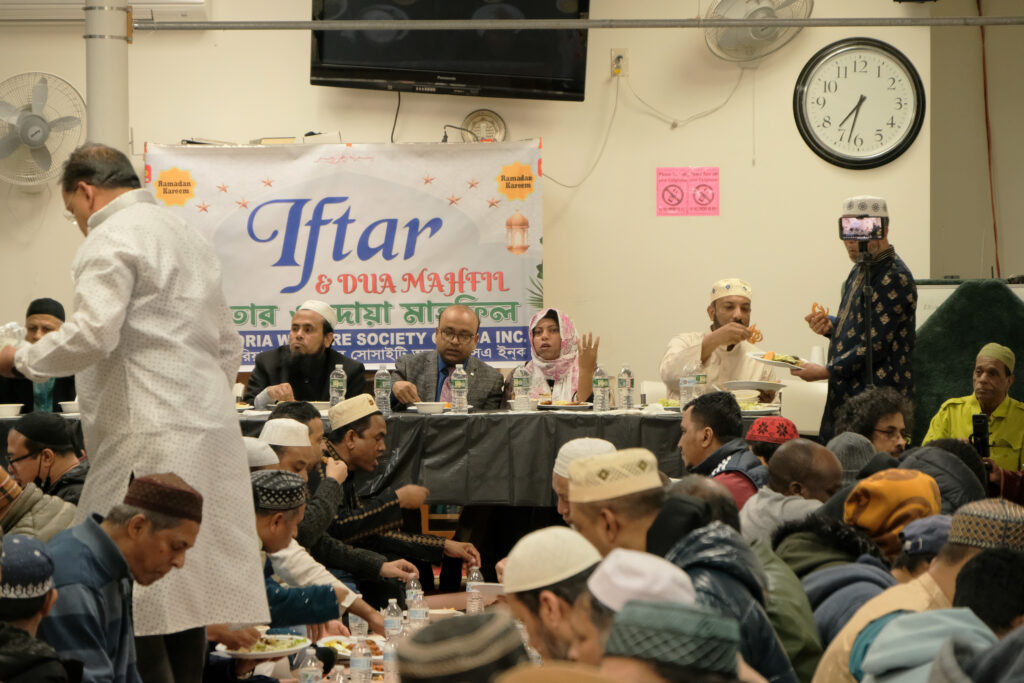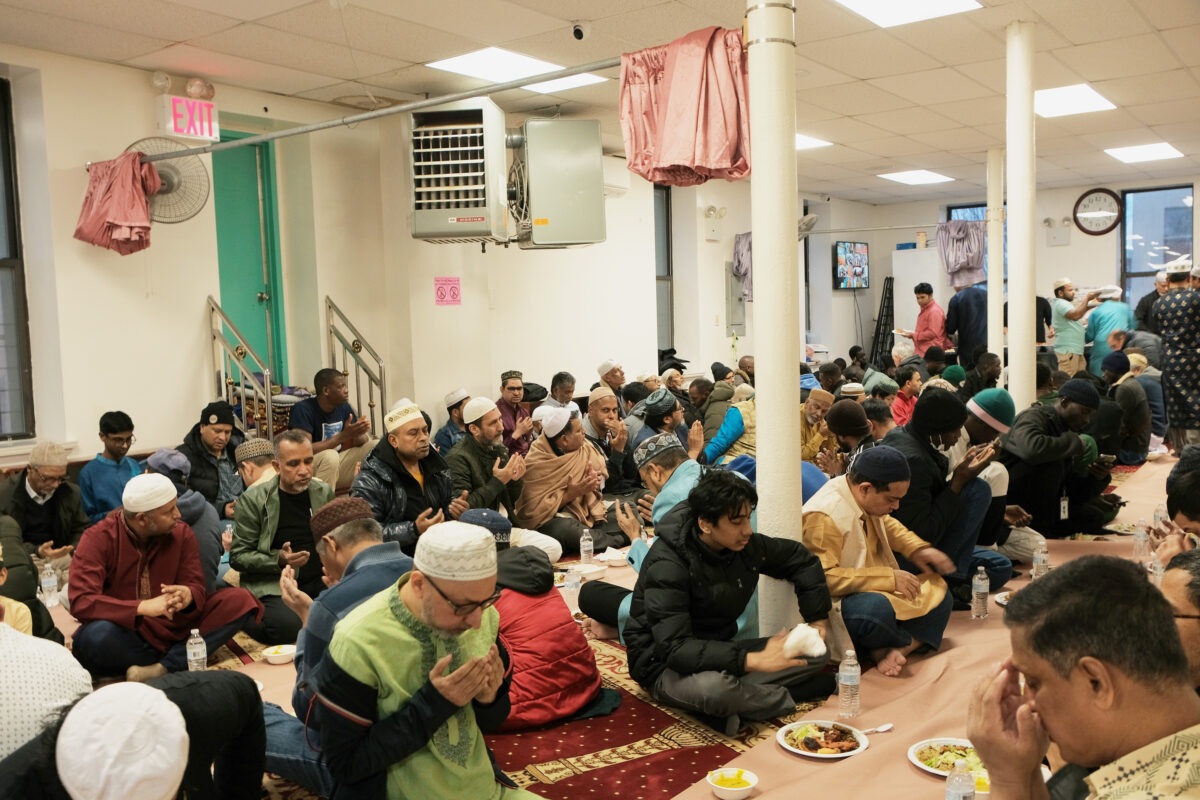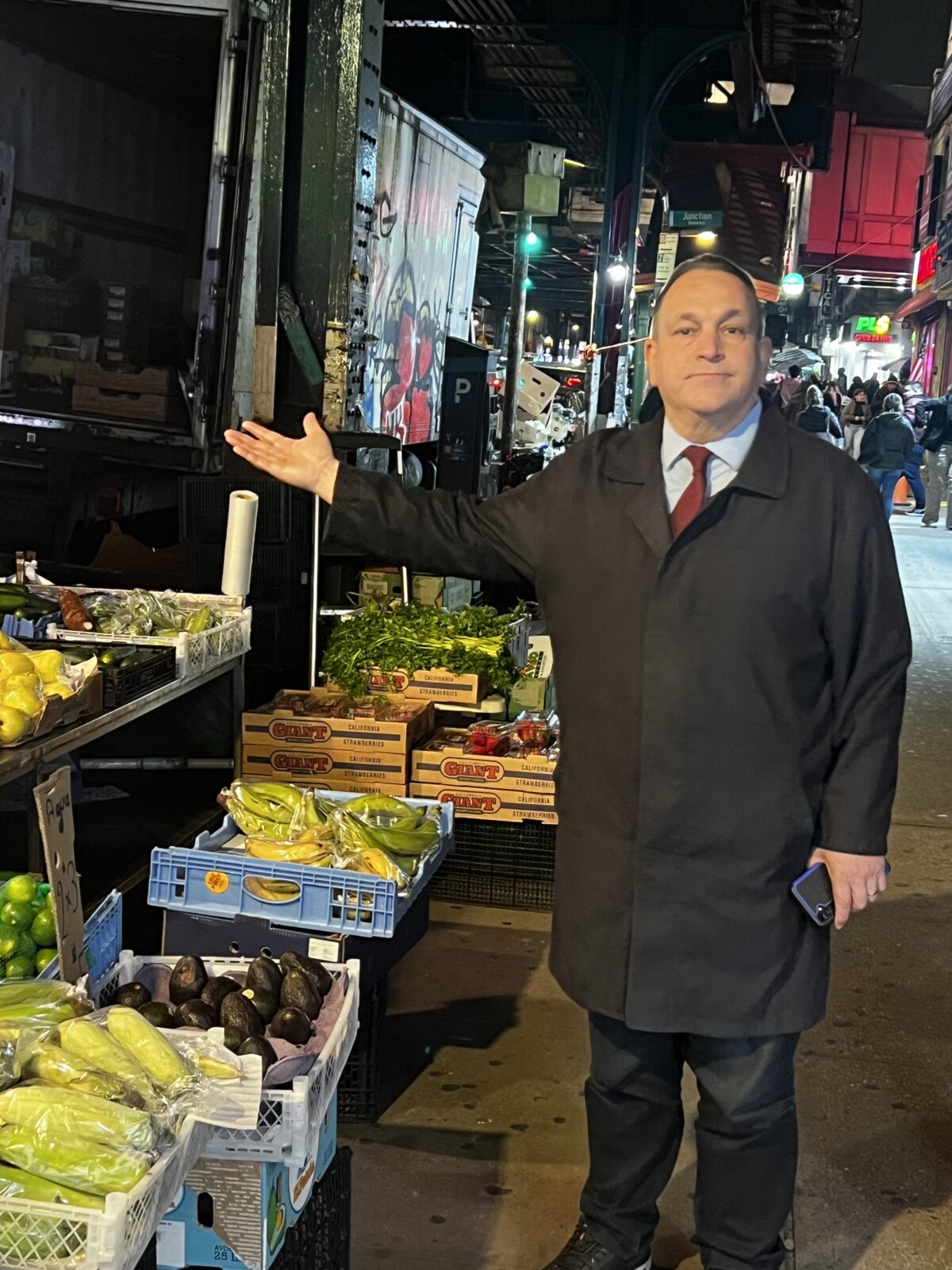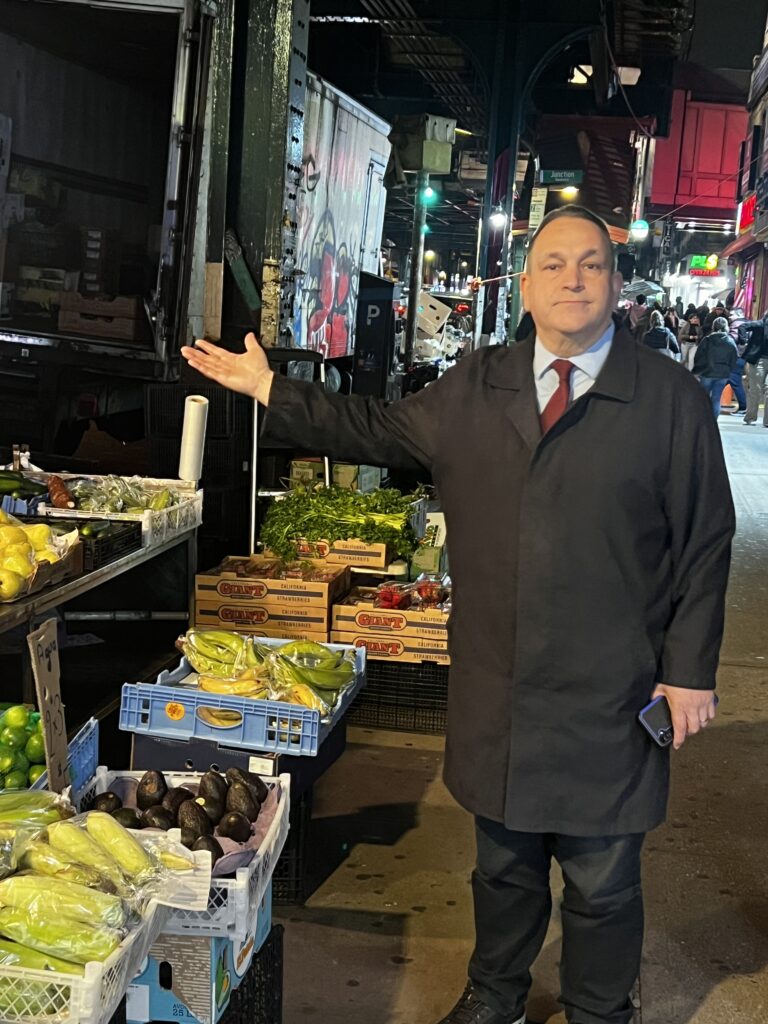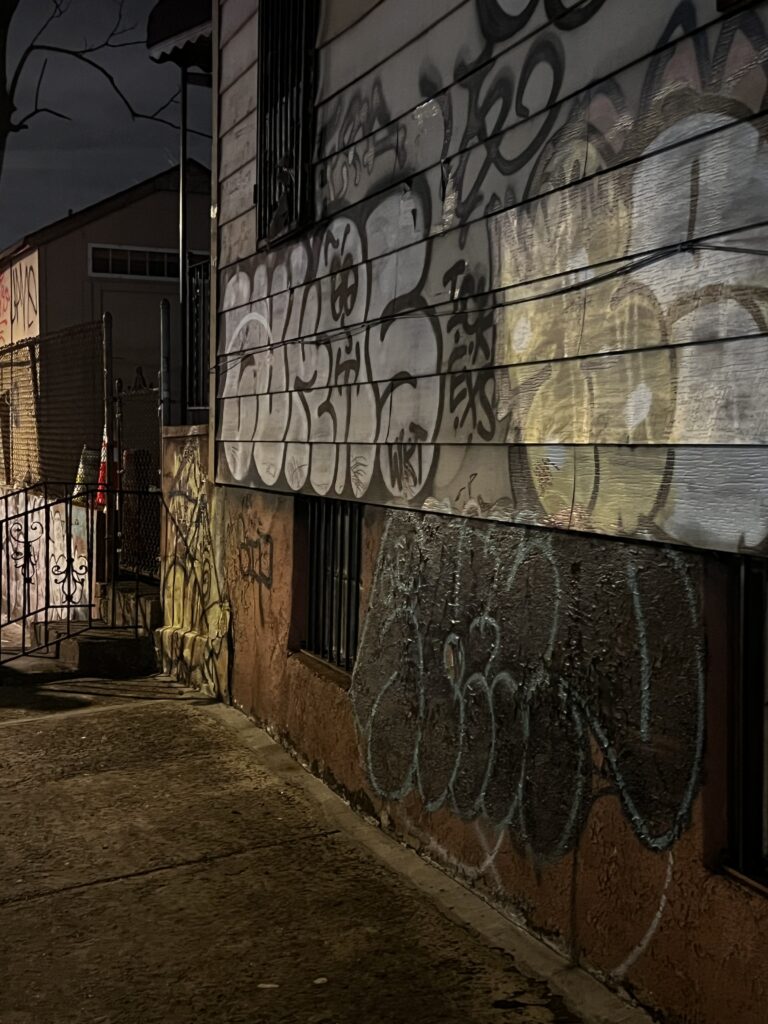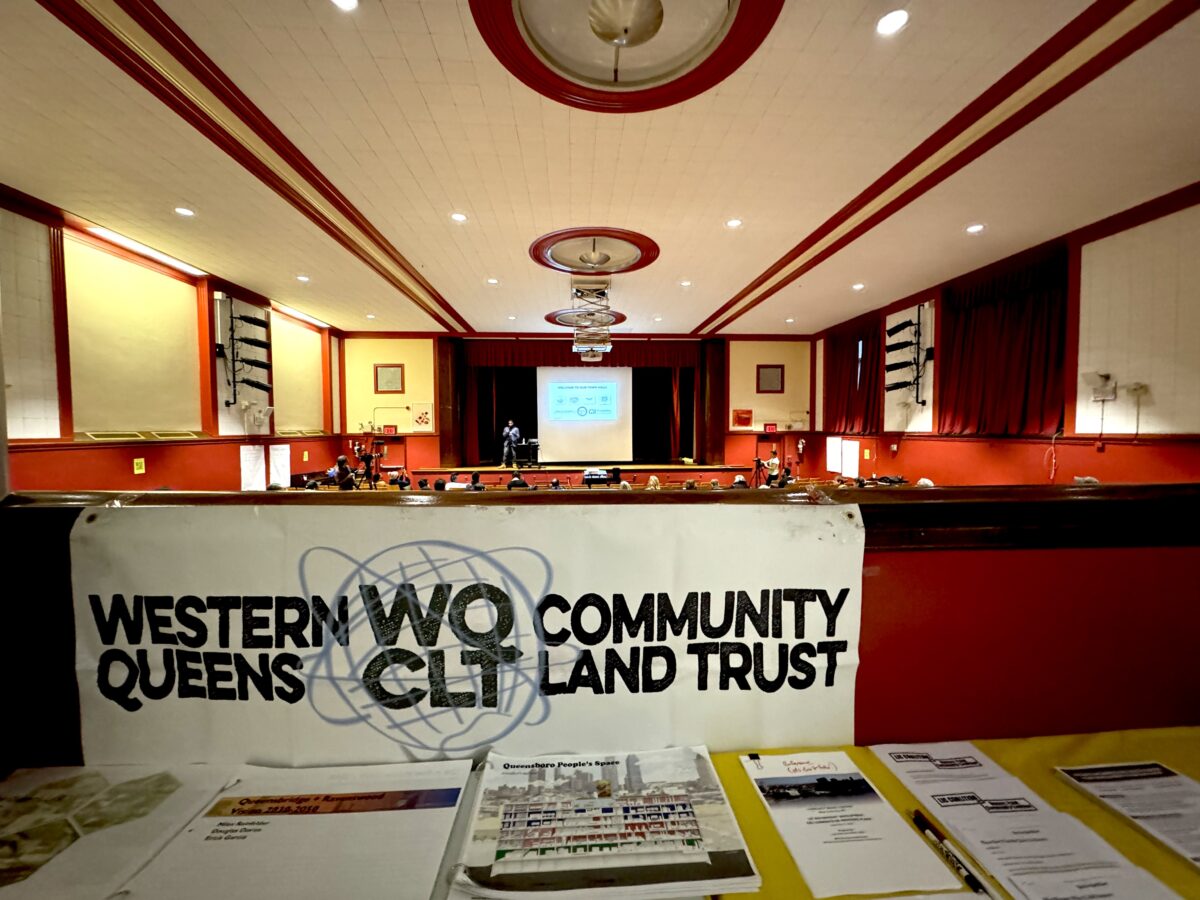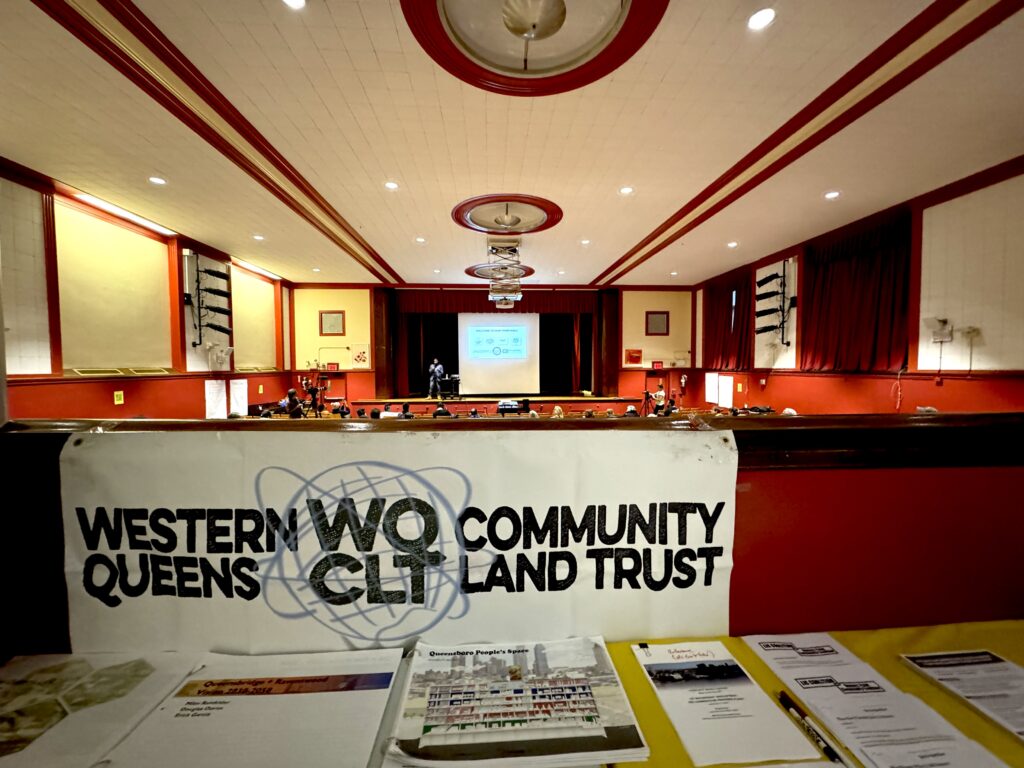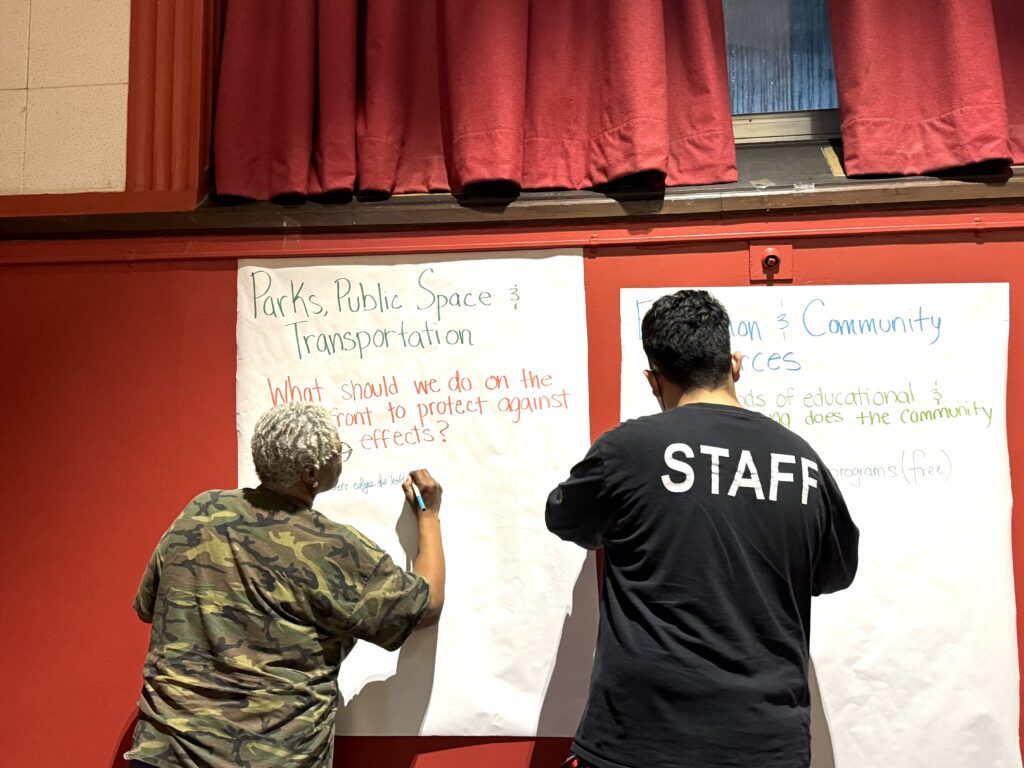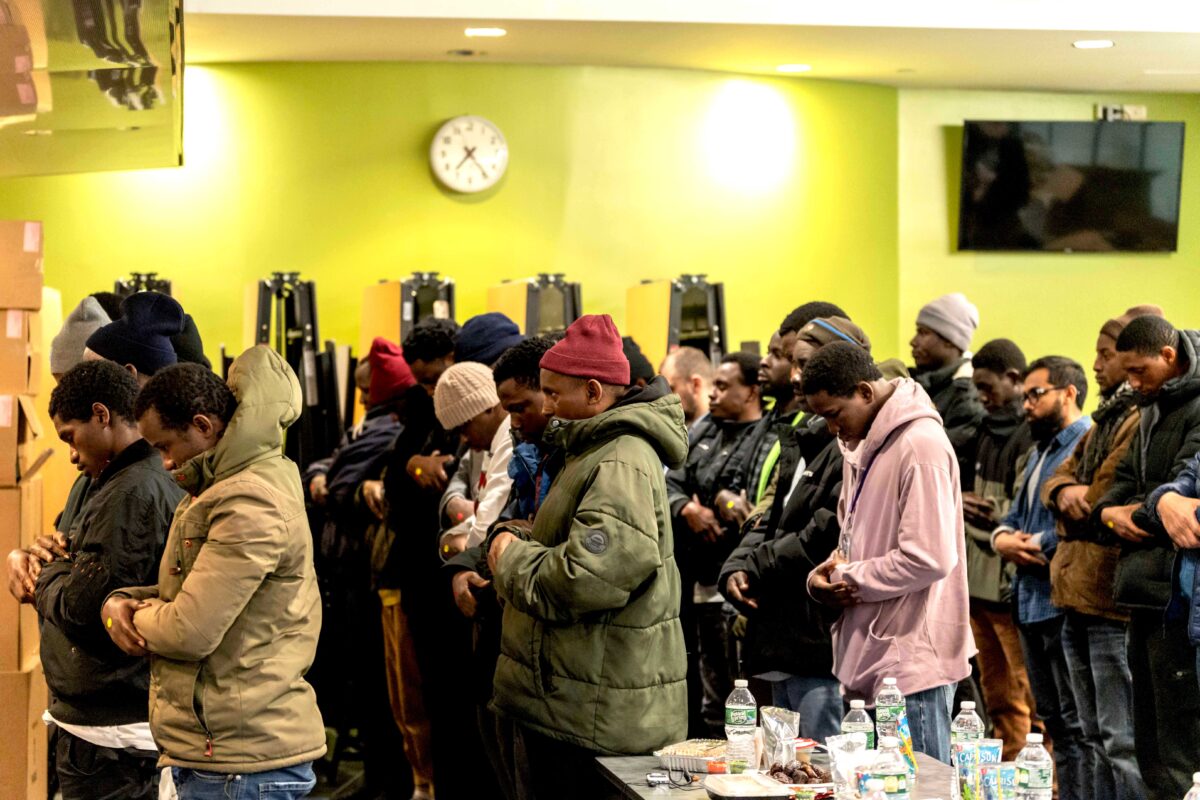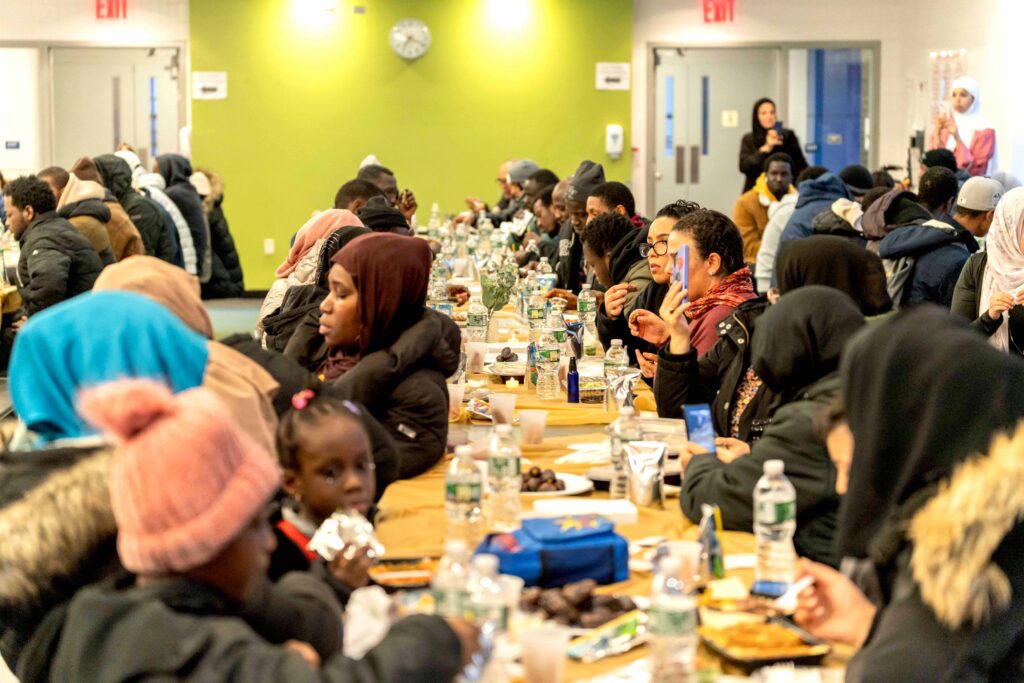
Courtesy Ayman Siam
Attendees eagerly break their fast together during the Iftar event, sharing moments of warmth and camaraderie amidst the setting sun.
By MOHAMED FARGHALY
mfarghaly@queensledger.com
The Frank Sinatra School of the Arts High School in Astoria, Queens, played host to a gathering brimming with warmth, goodwill, and a shared commitment to humanitarianism. New York City Comptroller Brad Lander, in collaboration with Malikah and Islamic Relief USA, orchestrated an uplifting Iftar dinner as part of their ongoing “Iftar on the Go” series.
Iftar marks the evening meal when Muslims break their fast during Ramadan, coinciding with the Maghrib prayer’s adhan, the call to prayer. This meal, their second of the day, follows the pre-dawn meal of suhur, initiating the daily fast observed throughout Ramadan. From sunrise to sunset, Muslims abstain from food and drink, concluding their fast with the evening meal of iftar at sunset.
Malikah is a grassroots organization in New York City advocating against gender and hate-based violence through self-defense training, healing justice, and economic empowerment. Partnering with schools, community organizations, and religious institutions, Malikah’s trainer model equips women and girls with skills in healing, self-defense, organizing, and financial literacy. Since 2010, they’ve impacted over 20,000 women and girls globally.
Islamic Relief USA (IRUSA) is a non-profit humanitarian agency and part of the Islamic Relief Worldwide network. Established in California in 1993, IRUSA undertakes global relief and development efforts alongside sponsoring domestic projects. These initiatives span from emergency disaster responses to aiding the homeless and supporting access to healthcare for those in need within the United States.
This initiative, a joint effort between the Comptroller’s Office and Islamic Relief USA, seeks to provide sustenance to families in need while also honoring the tireless efforts of individuals dedicated to supporting asylum seekers with vital services.
The event, held on March 27, saw a remarkable turnout of community leaders, activists, and advocates, each contributing to the fabric of New York City’s vibrant tapestry. Among the esteemed guests were NYC Comptroller Brad Lander, Malikah Founder Rana Abdelhamid, Afrikana Founder Adama Bah, as well as revered Imams Idriz Budimlic and Omar Niass. Their presence underscored the importance of solidarity and collective action in addressing the pressing needs of marginalized communities.
“Ramadan, Mubarak, I’m so honored to be here ,” Lander said, opening up the event. “It’s extraordinary work that this organization is doing, not just welcoming people, not just empowering young women, not just building community, but welcoming people into that sacred work.”
As attendees mingled and exchanged greetings, the atmosphere buzzed with anticipation and camaraderie. Representatives from Islamic Relief USA, Gambian Youth Organization, Astoria Halal Fridge, and other community organizations lent their support, further enriching the evening with their unwavering dedication to humanitarian causes.
“For Muslims at home and across the world, the holy month of Ramadan is a time of increased worship and heightened compassion for humanity. In addition to daily fasting, charitable acts and ensuring that our neighbors do not struggle with food insecurity is central to our worship. On behalf of Islamic Relief USA, I am proud to partner with the NYC Comptroller Brad Lander to meet the fundamental needs of New Yorkers across all five boroughs and deliver healthy, fresh meals to over 8,500 beneficiaries,” said Ahmed Shehata, Chief Executive Officer, Islamic Relief USA.
Throughout the dinner, poignant moments of recognition punctuated the festivities, as individuals instrumental in aiding asylum seekers were acknowledged for their selfless contributions. From providing nourishment and shelter to offering invaluable social services, these unsung heroes exemplified the spirit of compassion and generosity that defines New York City’s ethos.
Comptroller Lander, in his address to the audience, expressed heartfelt gratitude to the partners and volunteers who helped orchestrate the event. He emphasized the city’s longstanding tradition of welcoming newcomers and extending a helping hand to those in need, drawing parallels from sacred texts and historical precedents.
“We have a divine task to come to know each other,” remarked Comptroller Lander, invoking teachings from the Quran and the Bible. “Offering food to those who are seeking refuge in strange places, is a deep and profound tradition that we have. And that’s why I’m so proud of the Iftar on the go.”
Lander eloquently articulated the moral imperative of supporting immigrants and asylum seekers, reaffirming New York City’s identity as a beacon of inclusivity and acceptance.
The Iftar dinner also served as a platform to announce the continuation of the “Iftar on the Go” initiative, a testament to the ongoing commitment of partners like Islamic Relief USA and Malikah to address the evolving needs of vulnerable populations. Comptroller Lander underscored the importance of collaborative efforts in fostering a more equitable and compassionate society.
“For the second year in a row, Malikah is looking forward to collaborating on biweekly food distributions in Queens this Ramadan season. Ramadan is a time that amplifies the year-round struggles of food insecurity, an issue we witness daily in our work in Astoria, Queens. Especially knowing that we will be offering halal meals to Muslim asylum seekers in NYC who are already facing immense challenges, we know how vital this service is. Through our partnership with the NYC Comptroller’s Office and Islamic Relief USA, we are not only providing meals but also offering a sense of dignity and community support to our neighbors who need it most,” said Rana Abdelhamid, Executive Director, Malikah.
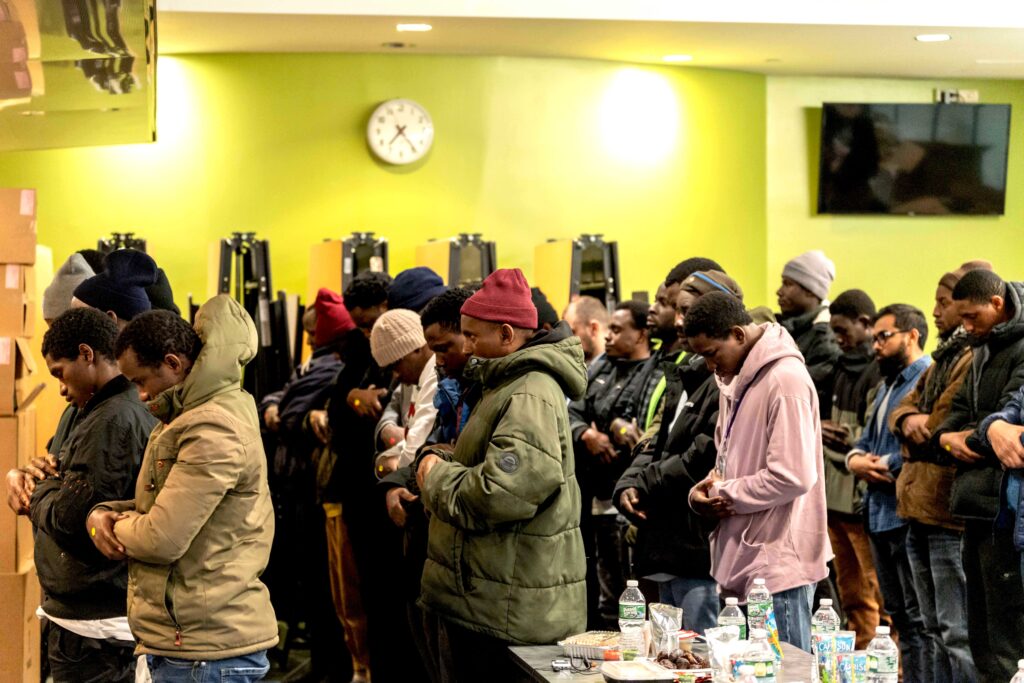
Courtesy Ayman Siam
Amidst the serene ambiance of the Iftar event, Muslims unite during the Maghrib prayer, a poignant moment of spiritual reflection and community bonding.
